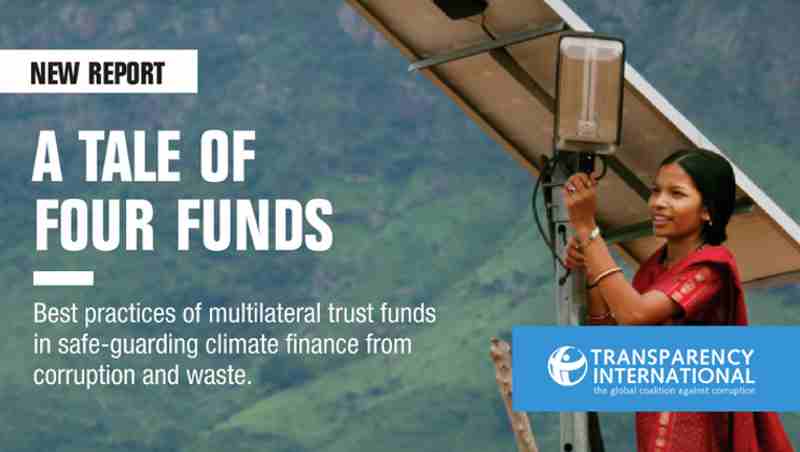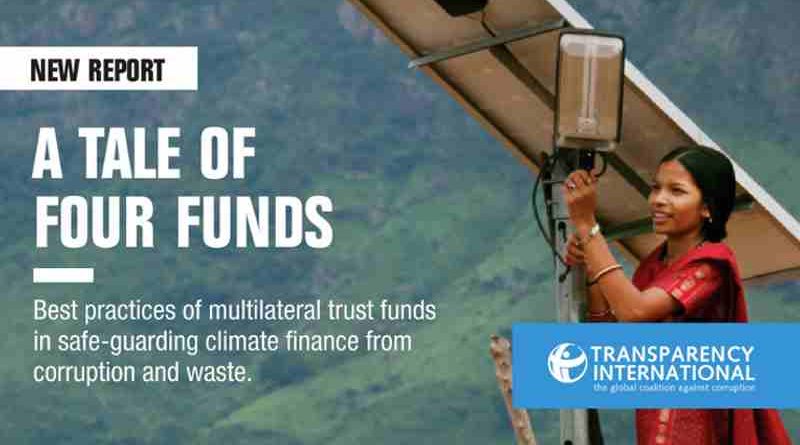Transparency Report: How to Prevent Corruption in Climate Finance

In a new report that analyses the progress made by four key multilateral climate funds, Transparency International – a global anti-corruption organization – warns that although progress has been made to increase transparency, accountability, and integrity policies, there is still more to be done to ensure climate finance is not jeopardized because of corruption.
A Tale of Four Funds report, which was published to coincide with COP23 climate change summit in Bonn, assesses the Global Environment Facility, the Climate Investment Funds, the Adaptation Fund, and the Green Climate Fund.
These funds are vital in helping some of the world’s poorest communities adapt to and mitigate the impact of climate change. Climate financing was highlighted in the Paris Climate Agreement as one of the key measures needed to help countries, particularly in the developing world, adapt and adjust to climate change.
[ Report Corruption in Delhi Housing Societies to Clean House ]
Transparency is now an ingrained requirement under the Paris Agreement, with discussions about a new Transparency Framework taking place at COP23. The UN Framework Convention on Climate Change (UNFCCC) and its funding mechanisms should learn from the best practices, Transparency International suggests.
It adds that UNFCCC should also learn from the failures of more established multilateral funds to increase the effectiveness of the Paris Agreement and ensure that climate finance benefits those that truly need it.
[ Journalist Raising Funds to Expose Corruption in Modi Regime ]
“The progress made by multilateral climate funds on anti-corruption measures is a testament to their willingness to listen to civil society and the needs of affected communities,” said Patricia Moreira, managing director of Transparency International.
“However, good policies require proper implementation, so the task now is for climate funds to make sure that the people they are supposed to help can engage with the decision making processes around how this money is spent.”
[ Corruption Rampant in India, BJP to Observe Anti Black Money Day ]
With more and more funds flowing into climate change adaptation and mitigation projects it is more important than ever that the UNFCCC, multilateral funds like the Green Climate Fund, and the other funds assessed take responsibility for their own transparency, integrity, and accountability.
Transparency International has long advocated for strong anti-corruption measures within these funds: it is now time to demonstrate the implementation and efficiency of these policies. This, according to Transparency International, is particularly true when it comes to complaints mechanism, sanctions, and whistleblowing protection.
Photo courtesy: Transparency International




![Children demonstrating in the streets of New Delhi so that the Indian government should protect them from dust pollution, noise pollution, and air pollution of extended FAR construction activity in occupied housing societies. Photo and Campaign by Rakesh Raman [ Click the photo to know the details. ]](https://www.ramanmedianetwork.com/wp-content/uploads/2017/04/dwkpol1-390x205.jpg)